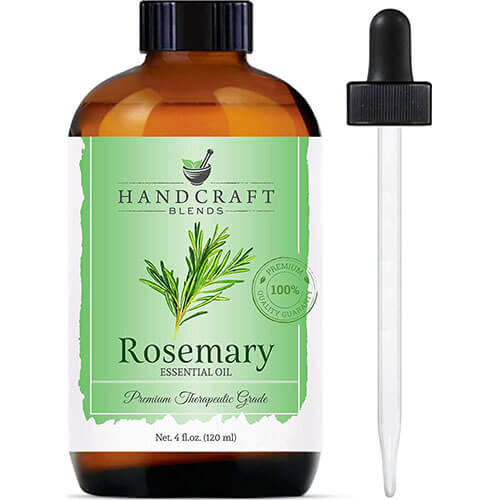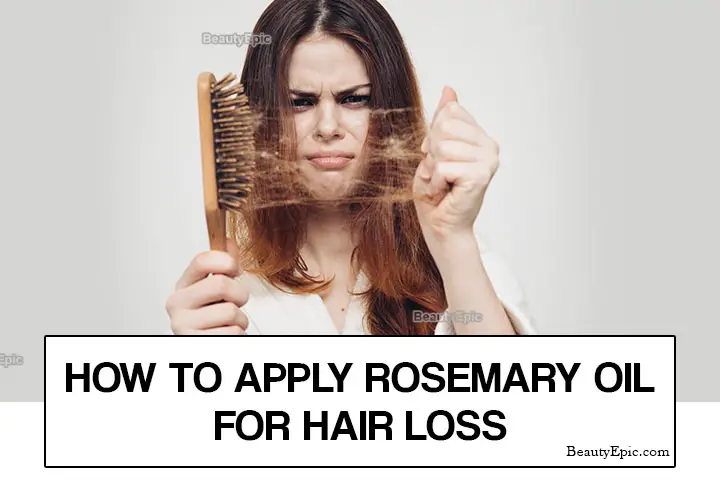Table Of Content
- What to Know About Rosemary Oil for Hair Growth, According to Experts
- Understanding Rosemary Oil and Hair Health
- Unlocking the Magnesium Bisglycinate Benefits: A Comprehensive Guide
- Medical professional hub
- What are the side effects of rosemary oil on hair?
- What Should Guys Look for in Rosemary Oil Products?

When you wash your hair, add a few drops of rosemary oil to your shampoo. Start with two or three drops per application of the shampoo product (such as a sample of the shampoo the size of a U.S. quarter). Researchers believe rosemary oil works by stimulating hair growth and blocking the effects of a type of testosterone, which shrinks hair follicles and leads to hair loss. A study from 2022 found evidence that rosemary oil can help with hair growth. In 2015, a clinical study showed that rosemary oil improved pattern hair loss and was just as effective as 2% minoxidil (Rogaine®). Since then, interest in rosemary oil has exploded – with many hair loss sufferers switching from Rogaine® to rosemary as a more natural solution.
What to Know About Rosemary Oil for Hair Growth, According to Experts
Furthermore, rosemary oil has been found to inhibit the production of DHT, a hormone that can contribute to hair loss. By blocking the effects of DHT, rosemary oil helps maintain the health of hair follicles and promotes thicker, fuller hair growth. To DIY your own diluted rosemary oil hair treatment, Dr. Doyle recommends mixing two tablespoons of your carrier oil of choice (she recommends jojoba) with two to three drops of rosemary oil. Apply the mixture to the scalp and “leave on for an hour before washing,” Doyle adds.

Understanding Rosemary Oil and Hair Health
Once the damaged cells are replaced and our tissue is repaired, we no longer need the pro-inflammatory cytokines or COX-2 enzymes. As our tissues become more and more repaired, the number of cytokines and COX-2 enzymes present slowly begin to decrease. Together, cytokines and the COX-2 enzymes (via prostaglandins) help control how many inflammatory cells actually arrive at an injury site. The larger the injury – the more inflammatory cells our tissues need to heal. However, it is important to dilute it first, and it should never be applied without dilution. You can change your settings at any time, including withdrawing your consent, by using the toggles on the Cookie Policy, or by clicking on the manage consent button at the bottom of the screen.
Unlocking the Magnesium Bisglycinate Benefits: A Comprehensive Guide

Remember that while natural remedies like rosemary oil can be effective, they're not always a substitute for medical treatment. If you're concerned about your hair loss or if you're experiencing any other health concerns, don't hesitate to seek help from a healthcare professional. Here are a few ways to try using rosemary essential oil as a hair restorative and thickener. Use them more often when desired or you’ve become comfortable using them. Moreover, rosemary oil is rich in nutrients such as iron, calcium, and vitamins, which nourish the scalp and hair follicles.
To prevent skin irritation or other side effects, avoid oils that contain fragrances and other artificial ingredients. One of the easiest ways to use rosemary oil for hair growth is to purchase shampoo with rosemary oil already in it. You will want to pick a shampoo with a higher rosemary oil concentration. The experimental animals were treated with a hair-removal cream, and the oleogels were applied over six weeks. Some rats were given the oleogels separately, some were given the oleogels in combination, and others were given minoxidil 2%, the main ingredient in popular hair growth products such as Rogaine.
Rosemary Water and Hair Benefits: What's Possible? - Verywell Health
Rosemary Water and Hair Benefits: What's Possible?.
Posted: Thu, 21 Dec 2023 08:00:00 GMT [source]
Integrating Rosemary Oil into Your Hair Care Routine
It is always advisable to perform a patch test before using any new product. †† Minoxidil is the only FDA-approved topical ingredient clinically proven to regrow hair and slow further loss. In a third-party observational study, more than 63% of male participants found Minoxidil to be effective or highly effective in hair regrowth.
Rosemary oil is a viral hack for hair growth. Does it work? - Toronto Star
Rosemary oil is a viral hack for hair growth. Does it work?.
Posted: Thu, 18 Apr 2024 07:00:00 GMT [source]
Another popular home remedy is rosemary water, which can be used as a final rinse after shampooing. To prepare, simply steep rosemary leaves in boiling water, allow them to cool, and then strain the mixture. This rinse aims to enhance hair count and add a natural sheen to your locks. For those seeking the best rosemary oils, it's important to look for products that are 100% pure, without any added synthetic fragrances or chemicals. By choosing high-quality rosemary essential oil, you can maximize its potential benefits for your hair.
According to a 2022 Combinatorial Chemistry and High Throughput Screening review, essential oils have a strong potential to be developed as anti-dandruff products. When applied to the hair, you can mix a few drops of the rosemary oil with a carrier oil (i.e., olive oil or avocado oil). Another option is to mix a few drops of the oil with your shampoo or conditioner. Never apply the undiluted essential oil directly to the hair or scalp.
What Should Guys Look for in Rosemary Oil Products?
Keep reading to find out, plus shop some of the best rosemary oil hair products—including top hair growth shampoos and scalp treatments approved by experts. Another study compared the effects of rosemary oil and minoxidil (a medication used to treat hair loss) in men with androgenetic alopecia. After six months, both rosemary oil and minoxidil groups showed significant improvement in hair count, hair thickness, and hair growth rate (2).
The study found that both rosemary oil and Minoxidil were effective in promoting hair growth but that there was no significant difference in the efficacy between the two treatments. Rosemary oil and Minoxidil are both commonly used to promote hair growth and prevent hair loss. While Minoxidil is an FDA-approved drug for treating hair loss, rosemary oil is a natural ingredient traditionally used to promote hair growth.
Though using the essential oil for hair loss is only done topically, be cautious — its effects in this regard are still unknown. After mixing about 5 drops of rosemary essential oil with a teaspoon of carrier oil (like jojoba oil or coconut oil), massage evenly into your scalp after bath or shower. Rinsing out the oil afterward is optional — though if you do rinse, let the oil sit on your scalp for at least 5 to 10 minutes beforehand. Gently massage the mixture onto the scalp, leave it on for a few hours or overnight if preferred, and then wash it off with a mild shampoo. Regular use of rosemary oil in hair care routines can help improve circulation to the scalp and strengthen the hair follicles. Experts recommend diluting rosemary oil with a carrier oil, such as coconut or jojoba oil, before applying it to the scalp.
Both products had comparable results, but the rosemary oil was actually more beneficial, as it was less irritating to the scalp. Some are even experiencing hair growth of record speeds, with a noticeable difference in length in just three weeks. "One study looked at comparing the effects of rosemary oil versus common medical treatment on male pattern baldness," she says. "However there are several flaws with the study that raise the question of its reliability. Furthermore, there is currently no data that can confirm if rosemary oil works on any other forms of hair loss." A small body of research suggests that rosemary oil might help with other forms of hair loss too. For example, another study suggested that rosemary oil may help to kill certain bacteria, which may help treat hair loss if it is caused by a bacterial infection2.

No comments:
Post a Comment